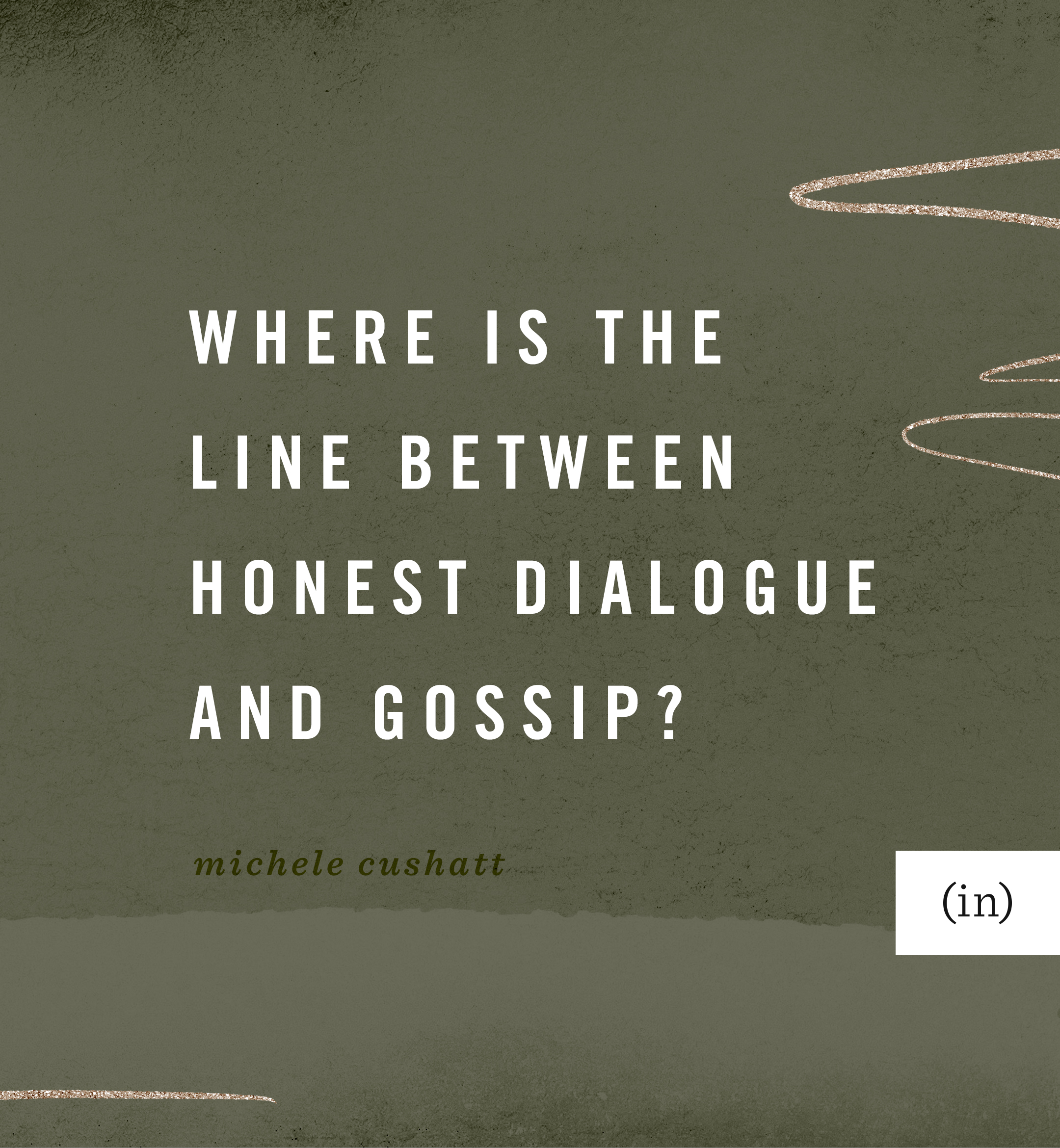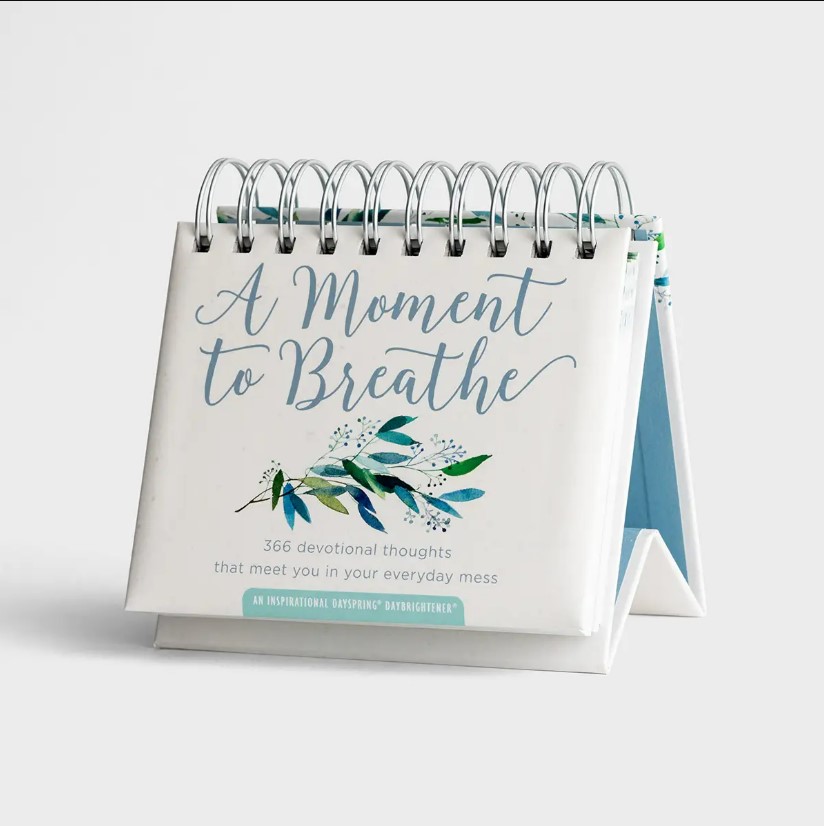The moment the words left my mouth, I wished I could take them back and swallow them. I hadn’t said anything profane or improper. Still, I felt my stomach twist with regret, the surest sign that the conversation would’ve been better served if I’d left a few of my words unsaid.
Moments before, a close friend called to vent about a difficult situation she was navigating. Having been friends for some time, I was familiar with the situation and had some equally strong opinions about it. So when she shared the most recent update, it didn’t take me any time to blurt out my opinionated commentary.
I’ll spare you the recreation of my less-than-gracious words. Suffice it to say, what I lacked in restraint I made up for with criticism and complaint. The result? Regret.
I’ve often struggled to find the line between processing real-life hurts with trusted friends and oversharing with unnecessary criticism. Am I the only one? As a Jesus-follower, I find it difficult to know when, where, how, and what to share about the more complicated situations involving people and relationships.
Where is the line between honest dialogue and gossip? Is it possible to simply vent about a difficult situation without oversharing or being unkind? How do I communicate with honesty, empathy, and grace?
The longer I live, the more I think these questions have answers that are more gray than black-and-white. Relationships and the conversations we share within them are nuanced, and they require wisdom and discernment. At times, we need to create safe spaces with trusted relationships to talk through the complexities of life and interactions. At other times, we need to process in private, sharing our biggest hurts and frustrations with God alone. More often than not, it’s a combination of both of these.
When in doubt, I often consider Solomon’s words in Proverbs 17:
The one who has knowledge uses words with restraint,
and whoever has understanding is even-tempered.
Even fools are thought wise if they keep silent,
and discerning if they hold their tongues.
Proverbs 17:27-28
When it comes to our conversations, Solomon advises us to practice skills like restraint, moderation, and even silence at times. In other words, less is more. And for this woman who is a “more” kind of woman, Solomon’s counsel hits its mark.
Although it’s taken me years, I am slowly learning temperance in my speech. I still overspeak, far too often. But I’m also seeing the wisdom in restraint, of pressing pause on my commentary and allowing some things to be left unsaid outside the confines of my intimacy with God Himself. In short, here are 6 key practices for all of us who want less regret in our relationships and, instead, more life-giving conversations:
6 Key Practices for Life-Giving Conversations
- Pause and pray. You don’t need to make it long and drawn out or complicated. Your prayer might be as simple as the words of Psalm 19:14: “May these words of my mouth and this meditation of my heart be pleasing in your sight, Lord, my Rock and my Redeemer.”
- Add journaling and/or solitude to your daily practice. If you’re an external processor, you might want to add journaling to your daily practices. I find journaling my angst keeps it from spilling over on the people around me and the conversations we share. Let’s be clear: I have a lot of words. My relationships would likely be better served by allowing some of those words to land on paper rather than in their ears. For those of you who are internal processors, make sure you block chunks of solitude to give your brain time to process before you speak. Like journaling, it allows you to find clarity before you engage in a loaded conversation.
- Learn the art of question-asking. For many of us, offering our point of view requires little effort. However, inquiring about another’s experience is often overlooked in our haste to speak. Wisdom involves learning the art of asking thoughtful questions. If in doubt, start with things like, “Tell me more” or “Help me understand your perspective. It matters to me.”
- Listen with openness. Openness requires humility. Although you may feel confident that you are right, openness allows for the possibility that you might be wrong or your perspective incomplete. To listen, we must put our rebuttals and responses to the side to fully engage with what the other person is saying. Did I mention it this requires humility?
- Utilize empathy and validation. Again, this is where restraint comes into play. To communicate true empathy and validate another’s experience, we must restrain the urge to blurt out our point of view. Instead, we enter into the other person’s experience, allow ourselves to feel what they feel, and then communicate understanding.
- Take responsibility and apologize. Why is this a key to life-giving conversations? Because we’re going to get it wrong sometimes. As long as we’re on this side of heaven, perfection isn’t possible. Learn how to recognize when you’ve said too much or said the wrong thing. Go back, own it, and apologize. Then, move on. Sometimes our mistakes are the best opportunities for developing stronger skills.
Being a positive part of life-giving conversations takes intentionality and practice. If the sting of regret over something you said still plagues you, give number 6 a try. Then move on and seek to do better. Ask God for wisdom. Receive His grace upon grace.







man can i relate to learning how to do this! additional tips to consider – for #1 – my go to is super short – “Lord, guide my words”. sometimes i repeat it in my head while the person is talking (while also listening!) “guide my words. guide my words. guide my words”. and #2 – i do journal daily, however, sometimes i need to (opinionatedly) say what i need to say out loud. i will have my imaginary “venting” conversation and get it out there, but respond differently after my quick prayer above (obviously this is more for email/text conversations or ). these conversations will happen in my room, in the shower, even in the car (these days people just think you’re talking on the phone. ha!).
have an awesome day!
Arian, having a ready prayer or mantra like “Lord, guide my words” is super helpful! Sometimes that’s all I need to keep from blurting out the first thing that comes to mind (which usually isn’t helpful haha!). Thank you for sharing what has worked for you. It helps all of us!
Very sage advice
God, help us speak with grace and truth.
Thank you! This is something I struggle with and I want to do better.
Me too, Debbie!
Thank you Michele for sharing your wisdom on this.
Much appreciated!
You’re so welcome, D!
Thank you for this! Overspeaking… that has been my default choice for too many years. I have been learning not to do that the last 3 years. For some reason, having dad and mom living with us for the last 3 years and caring for them… well, God used that to bring some changes in me. That default to pop off with words is still in my original model, but I have trained myself (mostly) to not respond with any unasked for advice or response, other than “I am so sorry about….” That seems to be enough to encourage them to keep sharing or they seem relieved and listened to. And I don’t have to apologize for saying something stupid, or regret it later on. There are certain people that push my buttons that I have to plan in advance: “Remember, don’t give any comments about anything they say, no matter how stupid or thoughtless or clueless it is.” Wow, that doesn’t sound very spiritual, but it works for me.
PS. I have finished your Relentless book and gosh, it is super! Thank you. Stephanie
There is much wisdom in what you shared here, Stephanie. I love how you said “I have trained myself …” Learning to speak with grace and patience isn’t something that comes automatically–it needs to be trained in us. It takes practice, intention, and even reminding yourself not to react or respond! It takes time and practice, but it works. Thank you for encouraging the rest of us with your experience!
(And I’m so glad you enjoyed Relentless. Much love, sister.)
This came at the right time. 🙂
I’m so glad, Jill. Be encouraged. You’re not alone in the struggle.
The art of communication is indeed that- an art. Thanks for your helpful points to improve. Thanks for the tone of the article- you are a fellow traveler with us all. Communication is so much more than verbal also, tone of voice, gestures, eye contact, mannerisms, etc all play their part.
What would you say to expanding on this post? You see the need right- with the number of shares already done!!
Michele,
I often have to bite my tongue to keep from saying what I think or feel. That doesn’t always happen. When I say the wrong things or use the wrong tone I always apologize. I care to much about the relationships to let words get between us. Plus I have empathy for them. Loved the list of practices.
Blessings 🙂